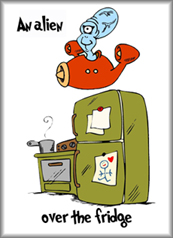
![]()
Home | Crosswords | Word Searches | Flash Cards | Verbs | Songs | Creative Writing | Work Sheets | Phonics | ABCs
Potion Book | Business ESL | ESL for Adults | Ask Thomas | Lesson Plans | Young Learners | Jobs |
Flash Cards
Survival English for Travelers:
A Basic EFL Course with lesson plans and activities - By Yoda Schmidt
Recently, I was asked to teach a one week course to some EFL students at a college near where I work. The course aim was to prepare the students for going to New Zealand for 6 weeks as language exchange students. I was told (and expected) that their level was going to be very low: false beginners, but just barely. Some true beginners in the mix for sure.
When I walked into the class, I said a very casual, "How's it going?"
Nothing.
"HOW ARE YOU?"
A look of relief on their faces as they replied, "Fine. And you?" in the robotic fashion that they learned in middle school.
OK. It was obvious. I had my work cut out for me. For me it would be a challenge because I always teach false beginners -the real ones- who have a lot of background knowledge and some listening ability, even if their spoken ability is limited.
What follows is a course outline complete with lesson plans and activities for teaching some very basic functions that they may need immediately on arrival in an English speaking country or even a country where the level of English as a second language is quite high. There is no particular order that must be followed, but I strongly recommend using Chris's Classroom English Lesson first. Probably, that is the single most important lesson they can learn. All lessons are about one hour in length. All of the documents are in MS Word format to allow for editing as teachers see fit:
Classroom English: A Card Activity.
What to Say When You Don't Understand Someone
This is actually not my lesson plan. This lesson plan was written by Chris several years ago. I always start beginner courses out with this one because it gives the students the skills to get information when they don't understand a speaker.
Making Introductions: A Line-up
Some Expressions for Introducing Yourself
Students look at questions for finding out basic information about someone. The students practice this language in a chain activity and a line-up activity.
Airport English: A Role-Play
Language Needed for Getting Through Customs
The class divides up into two groups. One group, travelers at an airport, have to get past the other group, customs and immigration officers.
Making Plans: A Line-up Role-play
Language for Making Plans on the Phone
The class is divided into two groups: callers and receivers. Callers telephone the receivers and try to make plans on the phone.
Hotel English: A Simulation Role-play
Language for Booking Rooms in a Hotel
Half the class become front desk clerks in hotels and the other half become guests. Guests go from hotel to hotel and book rooms the hotels.
Restaurant English: A Simulation Role-play
Language for Ordering Food
The class divides up into two groups: waiters and customers. Customers go from restaurant to restaurant and order food. As a complication, everybody has something to complain about.
Banking Role-Play: A Simulation Role-play
Language for Conducting Bank Transactions
A one hour banking role-play that explores the expressions needed to do five basic transactions at a bank: deposit money, withdraw money, cash checks, exchange currency, and pay bills. Students are divided into bank tellers and bank clients. Bank clients approach tellers and conduct banking transactions
Doctor Role-Play: A Simulation Role-play
Language for Visiting the Doctor
A one hour role-play for visiting the doctor's that explores the expressions needed to visit the doctor's offoce and talk about ailments and prescriptions.
Directions I: A Lineup Role-play
Language for Giving Directions Based on Street Name and Buildings in the Vicinity.
A one hour role-play for asking someone out and giving directions to a restaurant. Students also practice superlative (hottest, freshest, best) and nationality adjectives (Japanese, Chinese, Italian)
Directions II: Traveling on Foot or Car
Language for Giving Directions by Which Road to Go Down and Where to Turn
A one hour role-play for giving directions and making suggestions. Students also practice using reported speech and talking about museums.
Directions III: Traveling by Subway or Bus
Language for Giving Directions by Subway or Bus
A one hour role-play for giving directions by subway or bus and talking about department store sales.
Tours: Making Reservations
How Much Is It?: Shopping Role-play
3 Activities plus Vocabulary Support for Shopping.
This unit contains an information gap, a walk-and-talk, and a role-play, as well as numerous vocabulary worksheet.
I Need a Ticket to Osaka, Japan?: Airline Ticketing Role-play
Language for purchasing Airline Tickets.
This unit contains a one-hour role-play where students are divided into travelers and airline ticketing agent. Travelers have to find information about airline tickets.
I Needto Mail This to Mexico?: AGoing to the Post Office Role-play
Language for mailing letters and parcels.
This unit contains a one-hour role-play where students are divided into post office clerks and customers wanting to mail parcels and letters.

